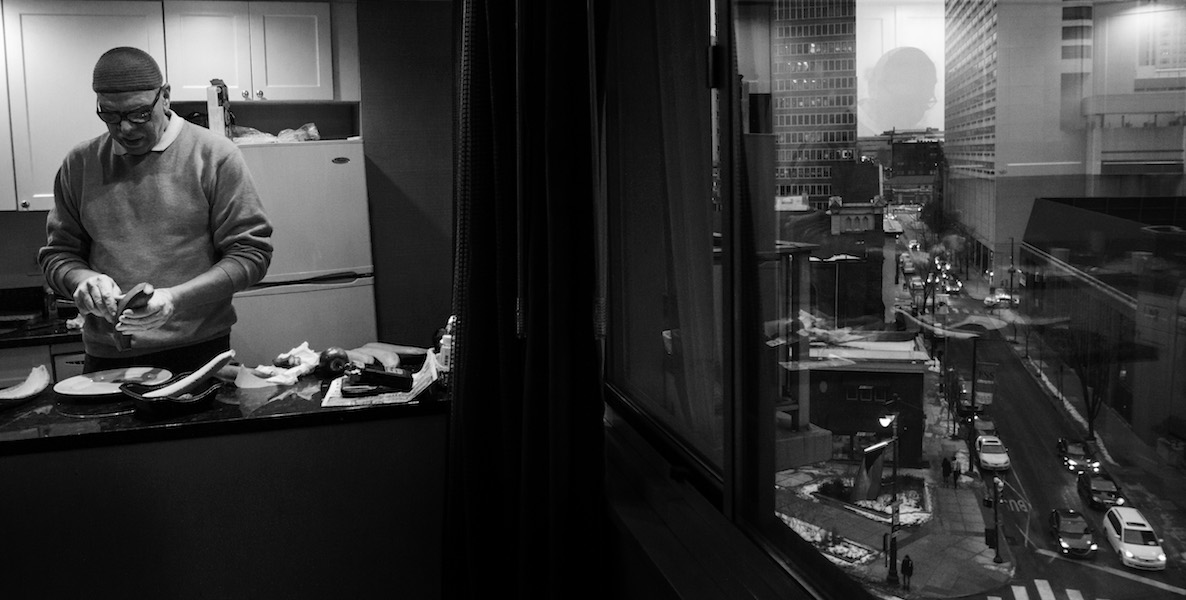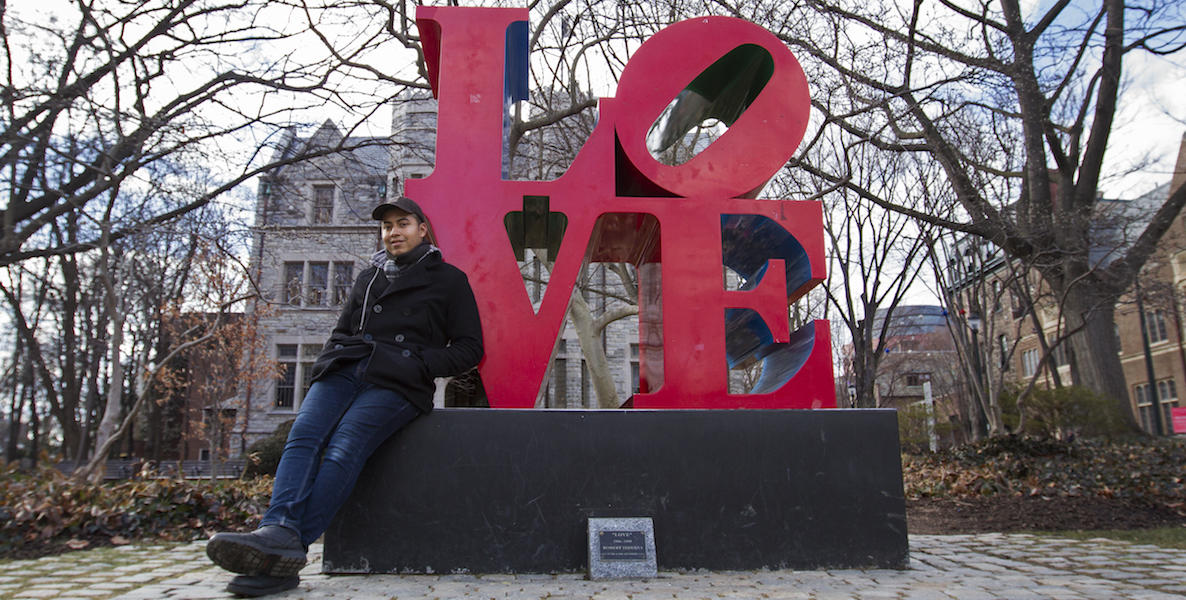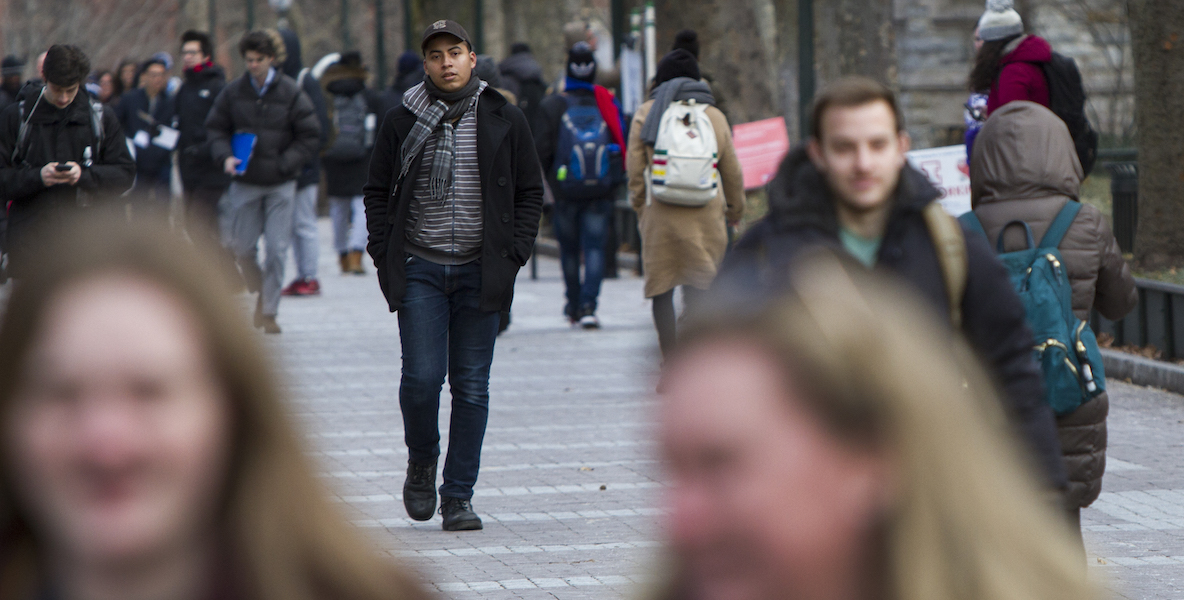Jorge Muñoz knew María would be different. After Hurricane Irma, people felt blessed; it had caused damage, but not as expected. It had changed paths at the last minute. The cyclone’s furious winds had unleashed destruction through the Caribbean, but it had barely touched the island of Puerto Rico. It was uncomfortable to feel grateful when people were suffering so much in Irma’s wake.
But Jorge had been keeping up with the weather reports. The catastrophe that had struck the British Virgin Islands a day before before was lurking near Puerto Rico’s coasts. It was only a matter of time until Maria’s devastation struck hard.
Jorge’s family had done what it could to prepare the house. Everything was still in boxes, since they had just moved in. It was an advantage: it would not be difficult to clean up any storm-induced messes. The streets were quiet and lined with shuttered homes, ready to weather whatever was to come.
The sky above grayed menacingly, announcing the impending arrival of the storm. At around 5:30, Jorge drove to his job as a security guard at a hotel in Isla Verde. He had picked up the job a year ago after taking some time off from college; he planned to go back to school soon. His night shift was supposed to last until midnight—but it would be two weeks before he would see his family again.
Jorge finds the contrast between his life in Philadelphia and what’s happening in Puerto Rico jarring. While he is comfortable, his dad still doesn’t have electricity. Everyday, he reads about people who still don’t have food or water, five months after the hurricane.
Like many others in the area, the hotel was used to receiving a steady influx of American tourists looking for a Caribbean vacation. Since Irma, the number of foreigners had dwindled. Most of the people around were staff and security. Jorge would be thankful for that later.
He went to bed shortly after midnight. The rain had started to pound on the hotel already. It sounded like it was trying to get through the walls. The winds roared fiercely as he fell into a slumber. The tormenteras had been put up on the windows, so nothing could be seen, but the debris flying outside could be heard crashing against the building. At around 1:30 am, other employees pulled Jorge away from bed. They needed to get to work, quickly. The storm had taken a turn for the worse, and protocol now was manos a la obra; all hands on deck.
![]() Flooding was an imminent concern because of how hard and fast water was pouring down. Staff began bringing guests down from their rooms, rounding them up into the lobby in case of an emergency. Some rooms had windows that had already exploded. People walked quietly through the hallways. The tranquility and order stood in shocking contrast to the furious cyclone pummeling through San Juan. Save for one rowdy person taking swigs from a bottle of rum, everyone was calm. The situation was being managed. Until it began to get scary.
Flooding was an imminent concern because of how hard and fast water was pouring down. Staff began bringing guests down from their rooms, rounding them up into the lobby in case of an emergency. Some rooms had windows that had already exploded. People walked quietly through the hallways. The tranquility and order stood in shocking contrast to the furious cyclone pummeling through San Juan. Save for one rowdy person taking swigs from a bottle of rum, everyone was calm. The situation was being managed. Until it began to get scary.
A wall wobbled from side to side in the lobby, until it finally exploded and splintered into a million pieces of wet plaster. No one had been near it, luckily, but the lobby began to inundate. The wind howled and launched the furniture towards the opposite ends of the room. The staff moved the chairs and sofas and tables to the public bathrooms as quickly as they could, praying they would not become hurricane-propelled missiles. People were rushed into office spaces and other alternate shelters.
Waterfalls began to trickle around the hotel. The cyclone’s winds tore open the roof of the casino. A cascade flowed over the roulettes, slot machines, and poker tables. In the kitchen, the ceiling had been destroyed. Since it was the only place where food was stored, people tried to save the supplies. Anyone who went in came out drenched. Only the bottles of water survived.
At around 6 in the evening, the flood levels inside the hotel dropped. Guests were sent back up to their rooms for the night. Staff and security cleaned up María’s mess for hours. Jorge’s shift finally finished around midnight. He had worked for about 23 hours in a row, without a break. He was not bothered by the length of time; it was a necessity. He would only get four hours of rest until he hopped back on shift “para seguir el mambo;” to continue the dance.
“We are strong and resilient because of everything that we have gone through,” Jorge says, “but it means we accept anything that happens to us or is done to us.”
It rained consecutively for two days after the hurricane. The post-María precipitation continued to stream down through the broken walls and roofs and into the hotel. Outside, the world looked apocalyptic. Carolina, the northern municipality where his workplace was located, looked like an urban dystopia. Electricity and telephone poles were strewn all over the streets; fallen trees made the roads impassable. At night, darkness swallowed everything. The generator provided electricity to the hotel, but everything around it was pitch black. And diesel supplies were dwindling fast.
Governor Ricardo Rosselló instituted a toque de queda. Jorge could be arrested if he was caught outside after 6 pm, so he did not leave. His shifts finished too late. Eventually, work hours went back to normal, so he could sleep through the night. The hotel provided accommodations for the stranded employees, but Jorge’s heart was in another place. He had still not heard anything from his family.

It was a week and a half after María that Jorge finally got in touch with his mother over text message. Everyone was okay, but the storm had been difficult to weather. María had howled at their home and declared war. Each family member had been in charge of a different battle station around the house. The storm had tried to force itself into the interior through different places, and a set of windows needed to be shut manually at all times.
Jorge left the hotel for the first time a few weeks later. Everything looked and felt strange. As he took a friend back home, he almost veered off the highway; though he had driven through these roads his entire life, he had no idea where he was. The AutoExpreso, Puerto Rico’s automated toll booths, were all turned off. Cars zoomed into traffic because there were no stoplights. People on the sides of the streets stood with their cellphones overhead, inching towards the sky, looking for signal around the few cell phone towers that had survived the hurricane. The desperation to communicate could be felt in the air.
As Jorge drove home, he was puzzled by another sight: the rows of people waiting by the gas station near his home to pump fuel. Jorge had not been able to read the news since María hit. He did not know about the gasoline shortage affecting the entire island. However, his initial forecasts of the storm’s consequences had been confirmed: It looked like a new place. It was a new place.
![]() When María hit, Jorge had already been planning to move to the United States with a couple of friends. He was disappointed with how things were in Puerto Rico—the federal government appointed Fiscal Control Board that oversaw all of Puerto Rico’s saving and spending, the crime, the lack of employment opportunities.
When María hit, Jorge had already been planning to move to the United States with a couple of friends. He was disappointed with how things were in Puerto Rico—the federal government appointed Fiscal Control Board that oversaw all of Puerto Rico’s saving and spending, the crime, the lack of employment opportunities.
After the storm, his mother lost her job. She sent her resume to relatives in West Philadelphia, who circulated it to different employers. She was offered a job the next day, and Jorge decided to move with her to Philly. He had lived in the city as a child when she had attended school here. It was a matter of stepping back into diaspora.
For now, Jorge is living with family as they settle in. After job searching for a while, he landed a gig as a temp at one of Penn’s administrative offices. He also enrolled in Community College for the 2018 spring semester, and is en route to finishing his degree.
But Jorge worries about what is going on back home. He finds the contrast between his life in Philadelphia and what’s happening in Puerto Rico jarring. While he is comfortable, his dad still doesn’t have electricity. Everyday, he reads about people who still don’t have food or water, five months after the hurricane. More than anything, he fears that the “Puerto Rican colonized mentality” will normalize the way of life that Maria has introduced into the island.
“We are strong and resilient because of everything that we have gone through,” Jorge says, “but it means we accept anything that happens to us or is done to us.”
Photo by Cameron Hart Visuals




